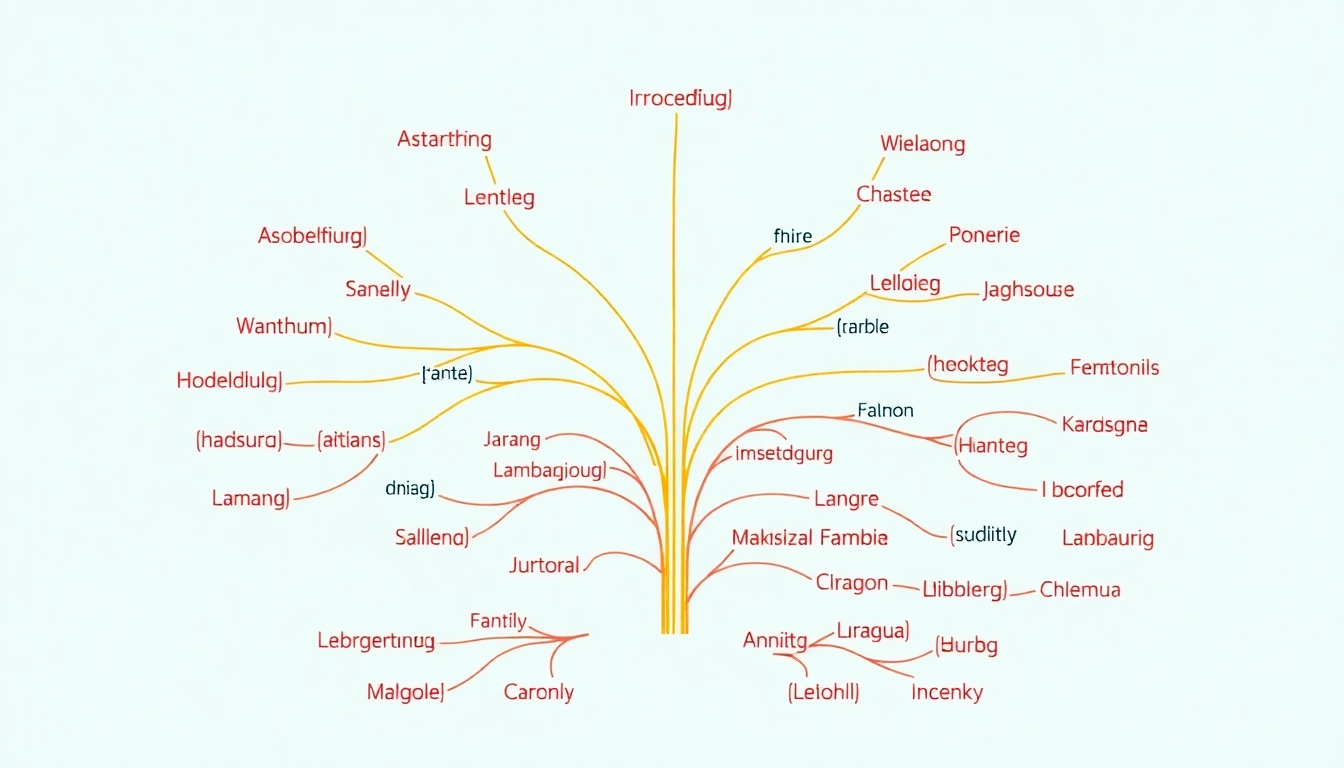Understanding Trade School in Tennessee
Definition and Benefits of Trade Schools
Trade schools, often referred to as vocational or technical schools, provide specialized education and training for specific careers or professions. In Tennessee, these institutions focus on equipping students with hands-on experience and practical skills essential for entering the workforce. The education offered at trade schools is typically shorter than traditional college programs, allowing students to begin their careers more quickly.
The benefits of attending a trade school are numerous. Firstly, students gain tailored knowledge that directly pertains to their chosen field, whether that be healthcare, automotive repair, construction, or information technology. This targeted approach means that graduates often enter the job market ready to perform specific jobs without the need for extensive additional training. Moreover, trade schools are generally more affordable than four-year colleges, lowering the barrier to entry for many individuals wanting to pursue further education. For those interested, there are many options available to explore trade school in Tennessee that provide diverse programs.
Types of Programs Offered
Trade schools in Tennessee offer a wide variety of programs across different sectors. Some of the most common fields of study include:
- Healthcare: Programs in this area include practical nursing, medical assisting, and surgical technology, which often lead to certifications necessary to work in hospitals and clinics.
- Automotive Technology: Students can learn about vehicle maintenance, repair, and the automotive industry’s latest technologies.
- Construction Trades: This includes training in electrical work, plumbing, carpentry, and masonry.
- Culinary Arts: Aspiring chefs can learn cooking techniques, kitchen management, and food safety protocols.
- Information Technology: Programs may cover networking, cybersecurity, software development, and IT support.
Each program typically incorporates both theoretical learning and practical application, with many schools providing internships or job placement services to facilitate the transition from education to employment.
Admissions Process and Requirements
The admissions process for trade schools in Tennessee is generally less complex than that of traditional universities. Most institutions require a high school diploma or GED as a basic prerequisite. Additional requirements may include:
- A completed application form, often accompanied by a personal statement.
- Referral or recommendation letters from teachers or employers.
- Entrance examinations, which may be necessary for certain competitive programs.
- Interviews that allow faculty to assess the candidate’s suitability for the chosen program.
Once accepted, students can then work on financial aid options, ensuring they understand the various financial commitments involved in their education.
Top Trade Schools in Tennessee
Overview of Notable Institutions
Tennessee is home to several reputable trade schools offering a range of industry-focused programs. Notable institutions include:
- TCAT Nashville: Known for its diverse array of programs ranging from healthcare to construction technologies.
- TCAT Knoxville: Offers programs in practical nursing and specialized courses in the construction and automotive sectors.
- TCAT Memphis: Known for its aviation maintenance program and a strong emphasis on practical training for various trades.
- TCAT Murfreesboro: Offers unique programs, including training at the Nissan Training Center, integrating education with real-world applications.
These institutions are part of the Tennessee Colleges of Applied Technology (TCAT), which are dedicated to providing technical education across the state.
Comparison of Programs and Tuition Costs
While the tuition costs for trade schools can vary significantly based on the program, location, and institution, trade schools generally remain more affordable than traditional colleges. For instance, most programs at TCATs range from $2,000 to $30,000 depending on the length and type of study. Students should consider the following while comparing programs:
- Program Length: Shorter programs typically cost less; however, they may impact the depth of knowledge gained.
- Facilities and Resources: Access to advanced technology and hands-on training facilities can enhance the learning experience.
- Job Placement Rates: Reviewing statistics on graduates’ job placements post-graduation is critical in determining program effectiveness.
Student Reviews and Success Stories
Reading student reviews and success stories is an invaluable way to gauge the quality of education at various trade schools. Many former students share insights about their experiences, what they appreciated, and how their training helped them in their careers. Testimonials revealing job placements, financial successes, and further educational ambitions can help prospective students feel more confident about their choices.
Financial Options for Trade Schools
Scholarships and Grants Available
Financing a trade school education can be manageable thanks to various scholarships and grants available to Tennessee students. Government-funded programs, as well as scholarships from private organizations and companies, aim to reduce financial burdens:
- Pell Grants: Federal Pell Grants provide financial aid primarily to low-income students.
- State Grants: Tennessee residents may qualify for state-funded grants through the Tennessee Student Assistance Corporation.
- Merit-based Scholarships: Many trade schools offer scholarships based on academic achievements or specific skills related to programs.
Student Loans vs. Financial Aid
Understanding the distinction between student loans and financial aid is crucial for potential students. While financial aid (grants and scholarships) does not need to be repaid, student loans require repayment with interest. When planning education finances, consider federal loans with lower interest rates as an alternative to private loans, and always explore grant options first to minimize debt.
Budgeting for Education Expenses
Creating a budget tailored for education-related expenses involves accounting for tuition, books, supplies, and living costs. Students should also consider the potential for part-time work during their studies or work-study programs offered by their trade schools. Effective budgeting prepares students for the journey ahead and ensures they can prioritize necessary expenses throughout their education.
Career Opportunities After Trade School in Tennessee
High-Demand Careers and Salary Potential
The job market for graduates from trade schools in Tennessee is often robust, particularly in high-demand fields such as:
- Healthcare: Practical nursing roles offer competitive salaries, with many graduates earning between $40,000 and $55,000 annually.
- Skilled Trades: Electricians and plumbers are consistently in demand, often making upwards of $50,000 depending on experience and specialization.
- Information Technology: Careers in this field can offer salaries ranging from $45,000 to well over $80,000, depending on the role and expertise.
By keeping an eye on industry trends, students can position themselves effectively in the job market upon graduation.
Networking and Job Placement Services
Most trade schools offer valuable networking opportunities and job placement services to assist students in finding employment post-graduation. Schools often maintain connections with industry professionals, leading to employment opportunities and internships for their graduates. Participating in networking events and workshops can significantly enhance career prospects, helping students build relationships in their chosen fields.
Long-Term Career Development and Growth
While trade schools prepare students for immediate entry into the workforce, ongoing career development is crucial for long-term success. Graduates should consider continuous education, certification programs, and skills training to remain competitive. Many trades offer pathways for advancement; for example, electricians can specialize in high-demand sectors such as renewable energy. Staying informed about industry changes and pursuing additional qualifications can lead to career growth and higher earning potential.
Choosing the Right Trade School in Tennessee
Assessing Your Interests and Career Goals
Before selecting a trade school, it is essential for prospective students to assess their interests and career goals. Identifying personal strengths and passions can help individuals select a program that resonates with them. Engaging in research about potential careers and necessary skills can guide decision-making for educational paths.
Visiting Schools and Meeting Instructors
Visiting trade schools and meeting instructors can provide insights into the learning environment and curriculum. Prospective students should schedule tours to experience the facilities, observe classes, and inquire about teaching methodologies. Interaction with faculty can reveal their expertise and commitment to student success, which are critical factors in choosing the right institution.
Making an Informed Decision
After thorough research, discussions, and visits, prospective students should compile their findings and reflect on their aspirations. Making an informed decision is paramount; students should choose a school with a strong reputation, relevant programs, and a supportive learning community. Ultimately, selecting the right trade school in Tennessee is a crucial step in embarking on a rewarding career path.



